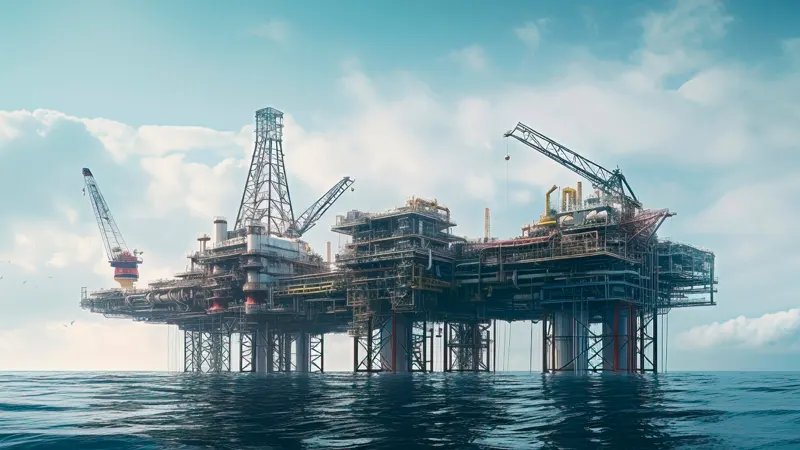Introduction
Southeast Asia is on the cusp of a transformative period in offshore oil and gas decommissioning. With over 200 fields and thousands of offshore platforms and wells projected to cease production by 2030, governments and stakeholders across the region face mounting pressure to ensure safe, environmentally sound, and cost-effective asset retirement. This paper examines the existing frameworks, key national approaches, and opportunities for regional harmonization.
Regional Frameworks and Guidelines
At the regional level, the ASEAN Council on Petroleum (ASCOPE) has published the ASCOPE Decommissioning Guidelines (ADG), a strategic, non-prescriptive document intended to guide member states in developing their national decommissioning policies. The ADG emphasizes operational safety, environmental protection, and cost-effectiveness, with the ultimate goal of fostering regulatory coherence across ASEAN nations.
Reference: https://www.ascope.org/Projects/Detail/1061
Country-Level Approaches
Malaysia
Malaysia leads the region in terms of regulatory maturity. Its framework mandates operators to submit detailed abandonment plans and allocate financial provisions for decommissioning. The PETRONAS Procedures and Guidelines for Upstream Activities (PPGUA) provide a robust foundation for technical compliance, aligning national practice with international conventions.
Indonesia
Indonesia integrates decommissioning obligations into its Production Sharing Contracts (PSCs). Operators are required to earmark funds for post-operational activities, and the regulatory framework guides site restoration and environmental remediation processes. Coordination between SKK Migas and other authorities continues to evolve.
Thailand
Thailand adopts a prescriptive approach. PSC contractors must provide financial securities for decommissioning, with terms approved by the Director General. The regulatory framework is relatively advanced and designed to ensure clarity and compliance at all operational stages.
Vietnam
Vietnam is currently enhancing its decommissioning framework to align with global standards. The country is prioritizing the development of guidelines that address both environmental concerns and operational best practices, including naturally occurring radioactive material (NORM) handling.
Brunei
Brunei’s Safety, Health and Environment National Authority (SHENA) has issued comprehensive Decommissioning & Restoration Guidelines. These emphasize a risk-based approach and are rooted in international treaties, promoting marine restoration and resource recovery.
Archived Guidelines: https://web.archive.org/web/20230610063809/https://shena.gov.bn/assets/publication_and_resources/chapter-1-overview-of-the-decommissioning-&-restoration-guidelines-1678167154.pdf
Key Challenges
Despite notable progress, the region faces several structural and practical challenges:
– Regulatory fragmentation across ASEAN jurisdictions
– Limited experience with large-scale decommissioning projects
– Financial uncertainties concerning decommissioning fund adequacy
– Inadequate marine environmental assessment and monitoring
Opportunities for Regional Collaboration
To bridge current gaps and maximize efficiency, Southeast Asia could benefit from enhanced regional coordination in the following areas:
– Harmonization of technical and regulatory standards across ASEAN
– Knowledge-sharing and capacity-building through cross-border initiatives
– Structured financial frameworks to manage long-term decommissioning obligations
– Cooperative marine protection protocols and post-decommissioning monitoring systems
Conclusion
Decommissioning in Southeast Asia presents both a pressing challenge and a strategic opportunity. By aligning national efforts within a shared regional vision and investing in institutional readiness, the region can ensure safe, sustainable, and cost-effective asset retirement for decades to come.
References
– ASCOPE Decommissioning Guidelines: https://www.ascope.org/Projects/Detail/1061
– CMS LawNow Southeast Asia Analysis: https://cms-lawnow.com/en/ealerts/2023/12/meeting-the-decommissioning-challenge-in-southeast-asia
– SHENA Brunei Guidelines (Archived): https://web.archive.org/web/20230610063809/https://shena.gov.bn/assets/publication_and_resources/chapter-1-overview-of-the-decommissioning-&-restoration-guidelines-1678167154.pdf
– Offshore Network Coverage: https://offsnet.com/content/asia-pacific/a-look-into-southeast-asias-decommissioning-challenges


